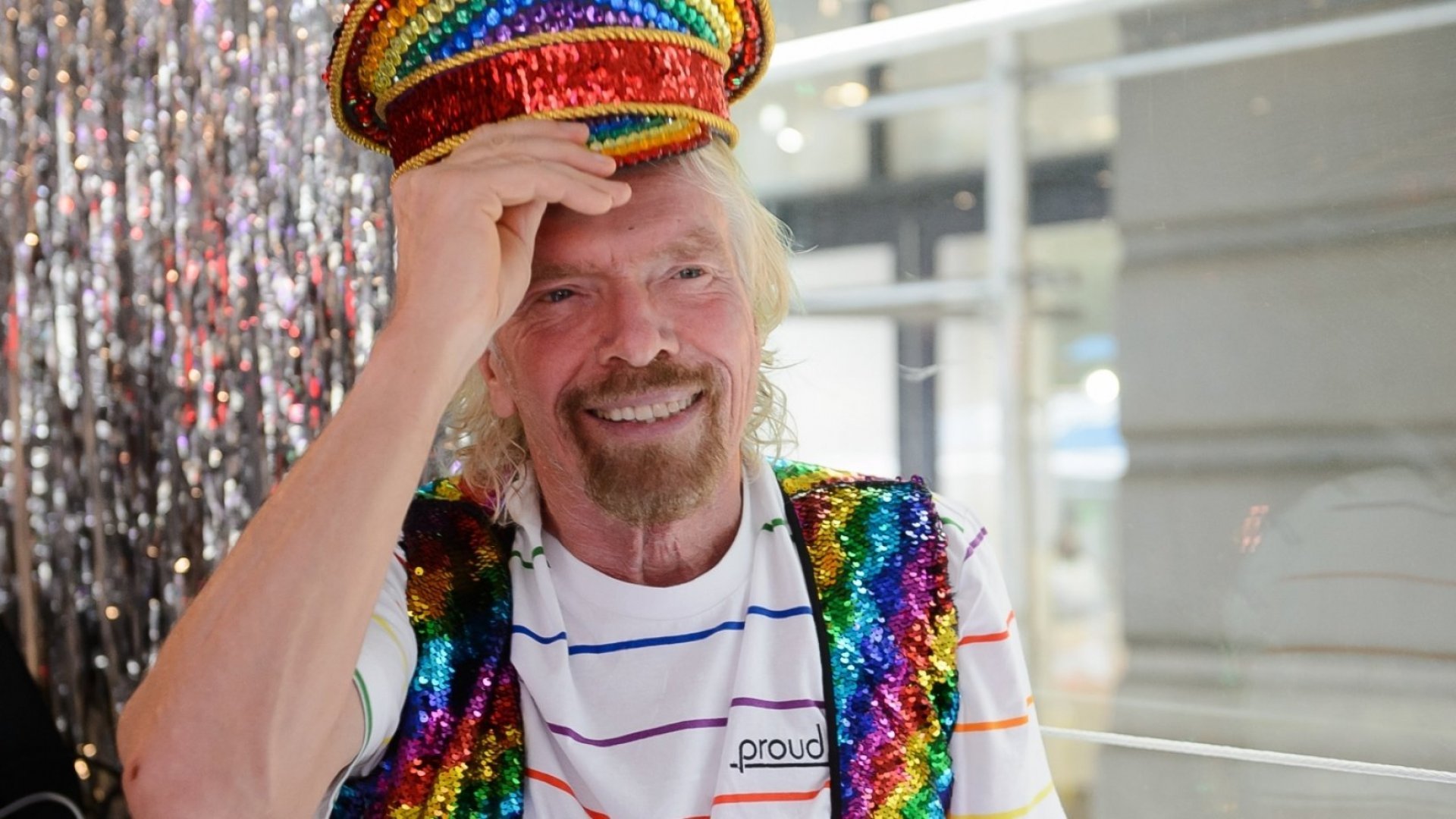Virgin Just Added Gender Pronouns to Email Signatures. Should Your Company Do the Same?
With the unemployment rate in the U.S. at record lows, employers are going to crazy lengths to find and keep talented employees. So if there were an instant, hassle-free way to make your business more inclusive and attractive to an often overlooked talent pool, would you do it?
Some businesses are answering yes to this question by changing their policies to nudge more employees to indicate their gender pronouns (i.e. he/him/his or they/them/their) in their email signatures and other bios. The goal is to make their companies friendlier to transgender and non-binary employees, collaborators, and customers.
This group includes Virgin, with founder Richard Branson recently taking to his blog to announce the change.
Being a LGBTQ+ ally is evolving
"Virgin has been an ally of the LGBT+ community since we started the brand," Branson writes, but "standing up for LGBT+ rights involves moving with the times and constantly adjusting what we say and do to make sure we're acting as inclusively as possible. Recently, that has meant getting up to speed with how we understand gender diversity."
In order to embrace the transgender and gender non-binary (those who identify with neither gender) communities and make it safer and easier for them to share their preferences in pronouns, Virgin has "chosen to add an optional field for our employees to write the pronouns they best identify with in their email signatures," he continues.
"Getting someone's pronoun right can feel like a very small gesture, but it can mean the world."
Sharing pronouns inches into the mainstream.
Changing an email signature is inarguably cheap and easy, but it's not logistics that keep many business leaders from adding the option. Some may wonder if the move will make their company appear extreme or simply confuse customers and collaborators. It's a fair concern, but there's evidence, beyond Branson's announcement, that sharing your pronouns is starting to creep into the mainstream.
First, just a few weeks ago Merriam-Webster's updated their dictionary to include a singular 'they' as correct usage, undercutting the arguments of grammar purists that using 'they' to refer to non-binary folks is somehow technically incorrect or unacceptable.
Even beyond the realm of culturally aware linguists, things are starting to change. Earlier this year Quartz rounded up examples of big, established companies moving to make it easier for employees to share their pronouns.
Investment giant TIAA, for instance, offered employees new guidance that suggests they "create the space for gender inclusion by asking for a client's preferred name and pronouns and/or by sharing yours ('Hello, my name is Jane and my pronouns are she/her. It's very nice to meet you.')" Intuit started letting employees add their pronouns to their Slack profile, and HR platform Workday, "made it possible for people to log into its dashboard and update their profiles with their pronouns and gender identity."
These aren't wacky, out there firms. Still, offering the opportunity for employees to specify their pronouns will be a new and possibly uncomfortable idea for some. But as gender inclusion strategist Max Masure reminds cisgender folks (that's all of us who never questioned the gender we were assigned at birth) on Medium, sharing your pronouns "normalizes the process, has little risk, and actually makes for a safer environment for everyone."
So while not every company or leader will want to follow Virgin's lead, it's definitely a move that's worth considering if you haven't considered it before.


